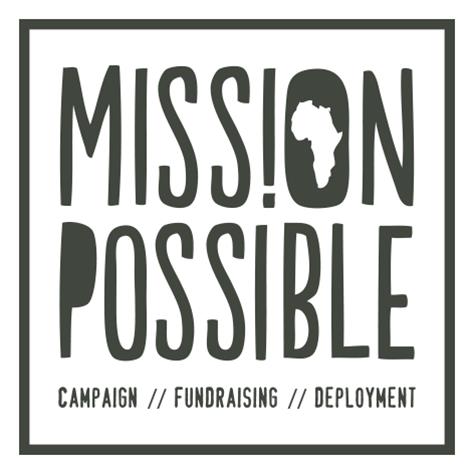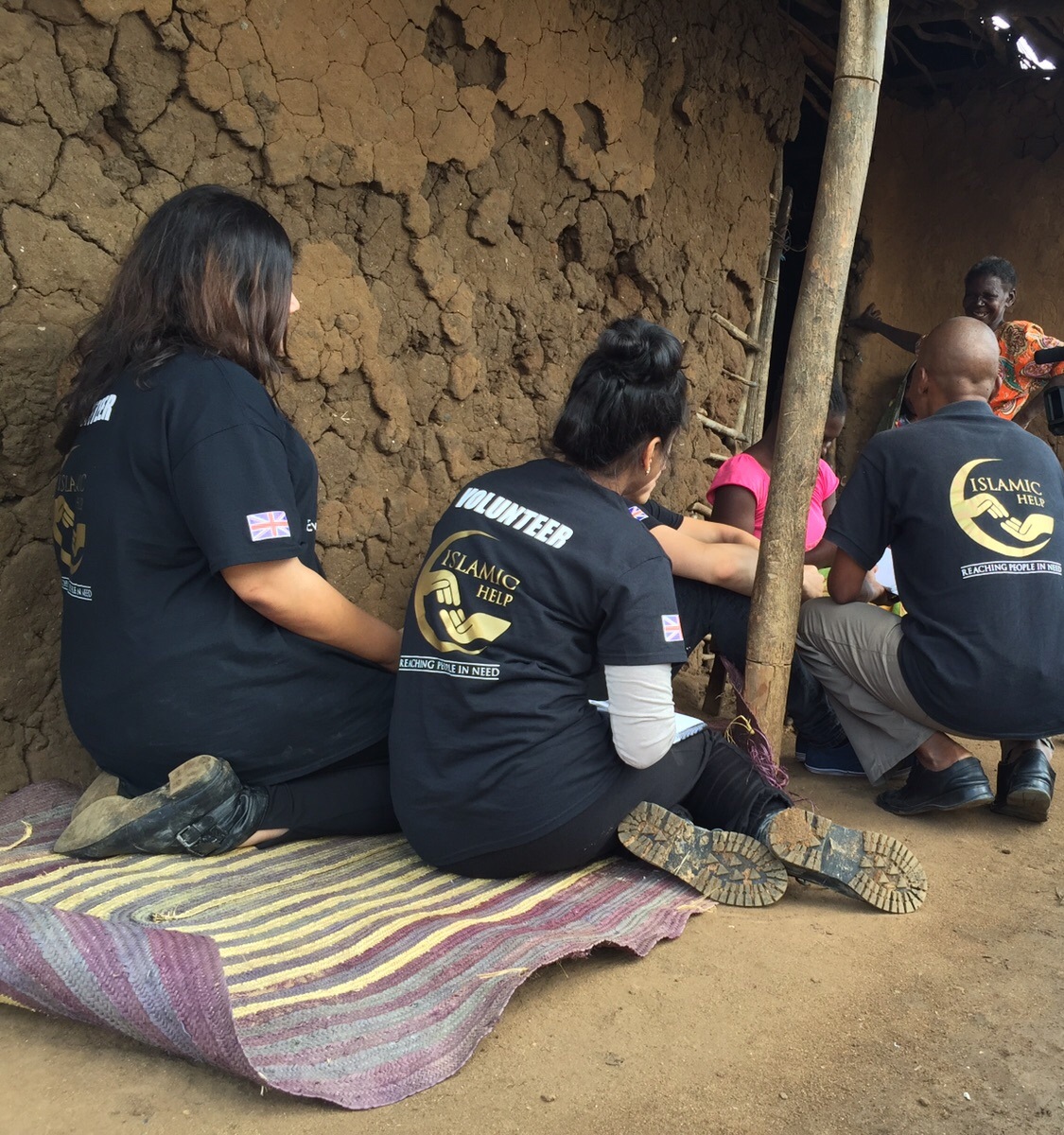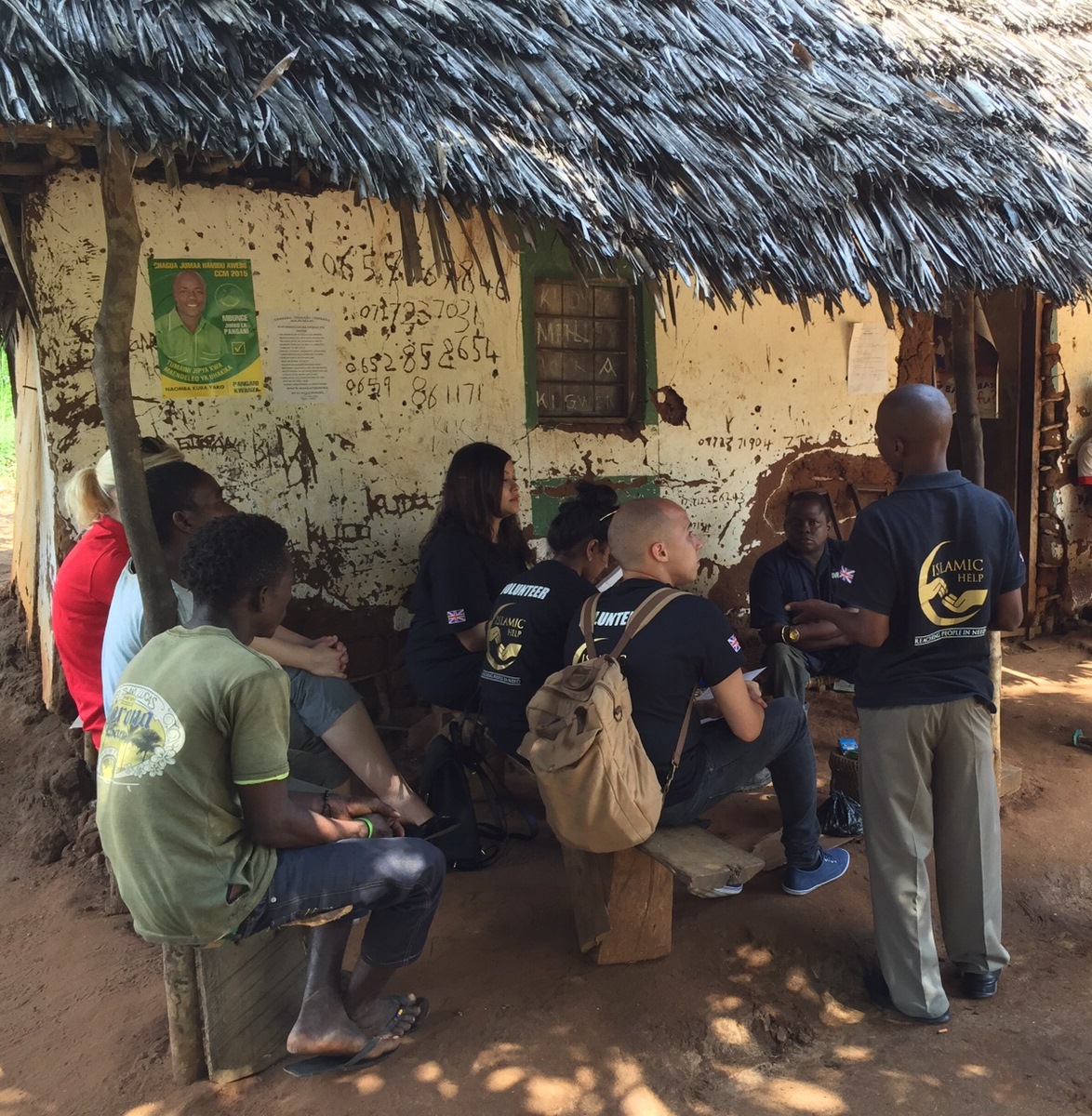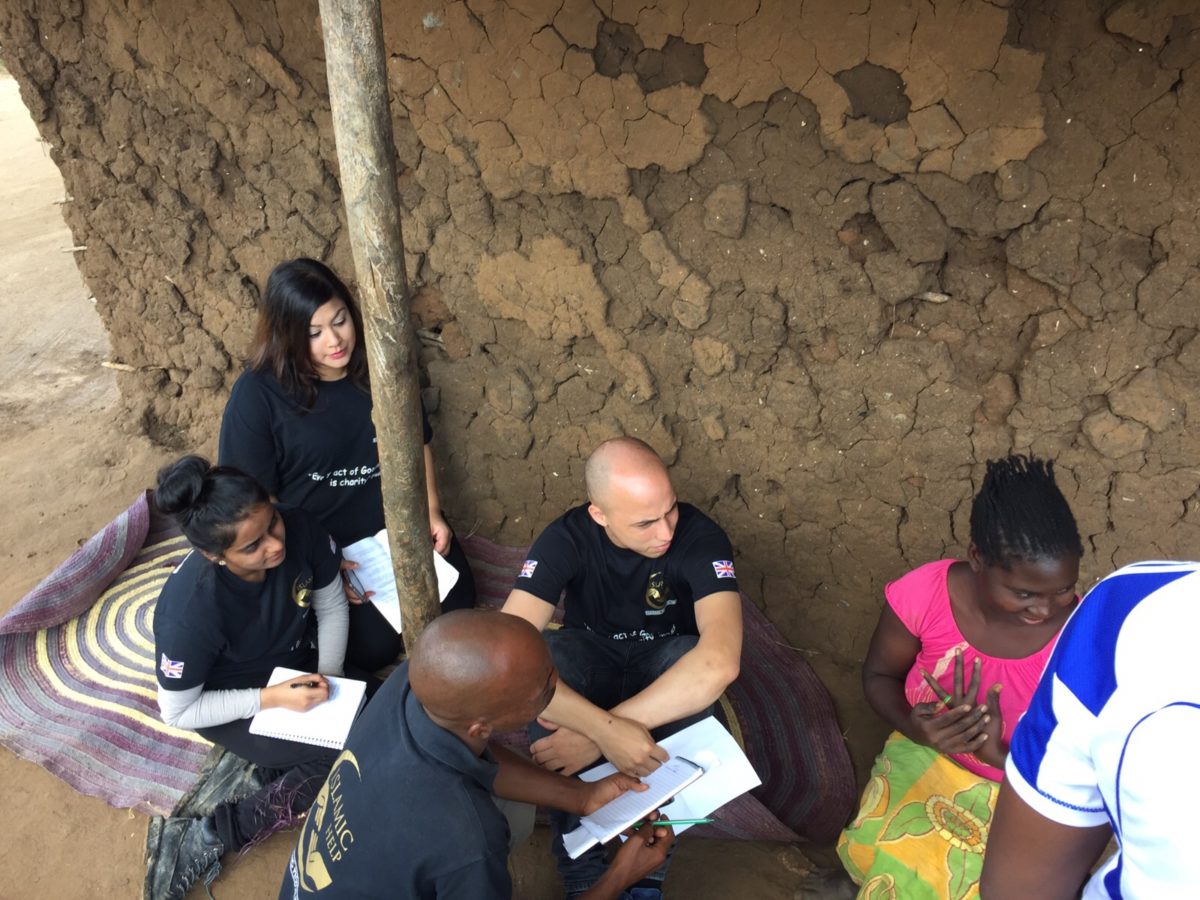Blog: Mission Possible, Aug 2015 - The Tears and Heartache of Giving Aid

On August 20, 2015, our Mission Possible team of volunteers and staff left the UK on the start of a 10-day deployment to Tanzania. This blog by volunteer Zaynab Chhitra describes how she was reduced to tears on her first day of meeting potential beneficiaries.
“Overcome with a mountain of emotions pretty much describes the first day. As we set off on our journey, I was very apprehensive and consumed with worry. I already knew beforehand that we had to say no to two people out of the five we interviewed for the businesses we were due to distribute.
Once we arrived at the Meka Village, we were swiftly taken to the first house. A man by the name of Emanuel was sitting outside his house on a bench. He greeted us and told us to take a seat.
I then began the interview and the first question I asked was what made him the ideal person to run this business. I wasn’t expecting the answer that was given and immediately felt like I could not proceed with the interview.

He told us that he was disabled and had a condition with his legs which meant that he could not walk and so had to use crutches to get by. Beside him were the crutches standing upright.
What surprised me the most was the drive he had, as though a raging fire was burning within him. He didn’t care about his disability, one that was most debilitating and restricted how much he was able to move around.
Nonetheless, despite this he still wanted to run a business and told us that he would ensure that it was well maintained. He went as far to say that he would travel to buy more stock when it diminished and would always replenish the stock. He would also get transportation on one of the motorbikes to get this stock and even take the ferry.
To me this not only demonstrated his commitment, but it also made me realise the stark contrast between the people here and those back home. In fact, that was pretty much prevalent with all the candidates that we interviewed. There was such a great disparity between us and them I thought, we would think of any excuse not to work, whereas they would find any excuse to work.
TEARS: Once we had finished the interview, he had gotten up on his feet and walked with the aid of his crutches. I could not contain it any longer and so I turned away and didn’t even realise that there were tears welling up in my eyes. This was only the first interview, we still had four more to go and I had already disintegrated into an emotional wreck. I vowed that I would keep strong and plough on.
We then met a young orphan girl called Watande (hopefully I got the spelling right), she also suffered from a disability. She made quite an impression on us did young Watande, she was so incredibly shy and diffident and could not even look at us. Come to think of it, this was a characteristic that was apparent in all the candidates we interviewed - diffidence.
There was an air of modesty whenever we asked how people would describe them in the village. Her mother offered to answer questions on her behalf and we were told how many dependants there were.
After we had finished the interview, we were given a tour of the house. We were shown to a room, where Watande’s mother was lying on a bed, lifeless almost. We were told how she was paralysed and could not move, so she needed to be taken care of and constantly attended to.
HEARTACHE: At this point, I wanted it all to end. I couldn’t possibly say no to any one that we had interviewed, especially having seen what I had seen. But, I had to put my emotions aside and focus on the objective at hand as we still had three more interviews to conduct.
The next person we met was a man named Abdi, he was 75 years old, but mind you was in great shape for his age. He told us that he suffered from asthma and so would not be able to take on a full time business but he would be more suited to livestock. We made a decision to continue the interview regardless.
We could instead ask him questions about the livestock and consider him for that. He told us that the house he lived in was not owned by him and the only thing I could think of is if at his age he is told to vacate the property and in turn become homeless. We thanked Abdi for his time and shared a joke or two with him.

We then moved on to the Mafisi Hamlet, where the last two interviews would take place here. The first woman we met was Leena. She had a captivating smile and she taught us a great handshake, one that I’ll definitely be taking back home.
She had this demeanour about her, one that was so welcoming and her smile only added to it. She told us how she was responsible for looking after 10 households in the village, but what impressed me the most was her business acumen. In my head, I had already decided she would be one out of the three people who we gave the business to. We completed the interview and she could not have been more grateful for the visit, in fact they were all so grateful.
The last interviewee was named Signaello and was quite young, one of the things we immediately picked up on was what she was wearing, and a comment made by another volunteer led us to call her the ‘African Princess’. Hers was quite a memorable interview because of her response to one of the questions we asked.
The question was what characteristic/s she thinks she possesses which would contribute to the success of the business. Her response, “I’m charming”. I personally thought it was brilliant, not many actually would have the courage to say that in an interview, so for that she should be commended.

It then came to the hardest part of all and that was the decision making. Although we only really had four candidates to choose from, it was still a tough decision nonetheless. We were all ruled by our emotions and could not see past it. We finally made a decision and thought we should give the businesses to Leena, Watande and Emanuel.
Now, it was time to deliver the bad news to Signaello. As we went to her house, we were informed she wasn’t there and had gone into town. I thought this would make it much easier to tell someone else the bad news, but I was so wrong.
I told one of her family members and something hit the centre of my heart, this piercing pain. I could not take it any longer, I had to look away. The thought of depriving someone of a livelihood affected me so much, I had to walk away. This is an opportunity that would present itself maybe once in a lifetime and I had taken it away within a few minutes. The feeling did not subside and I think it will stay with me for quite some time.”
Zaynab Chhitra



